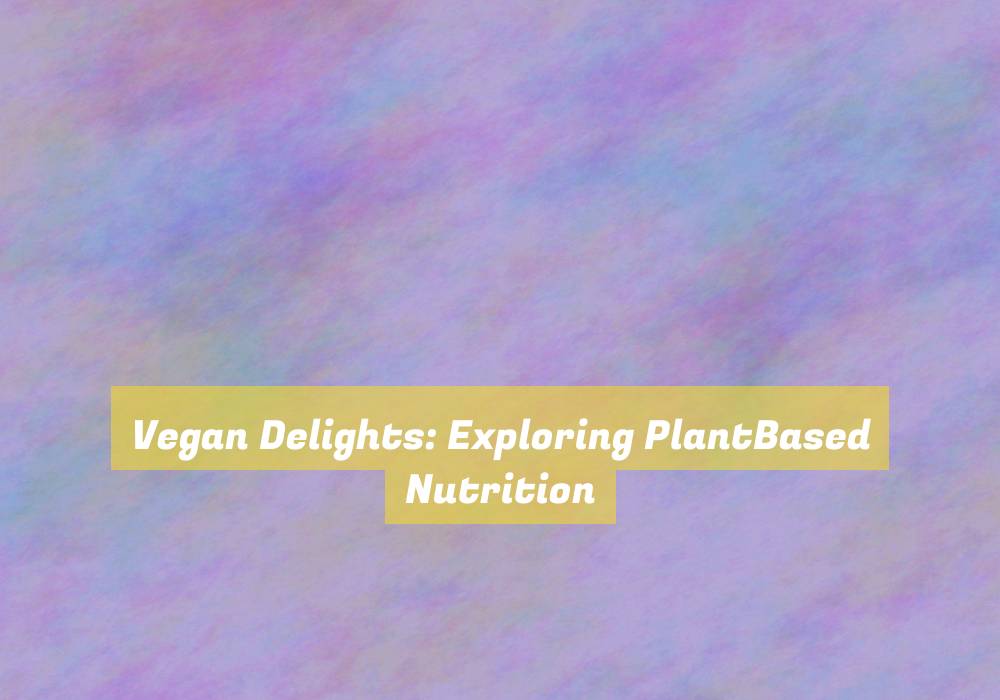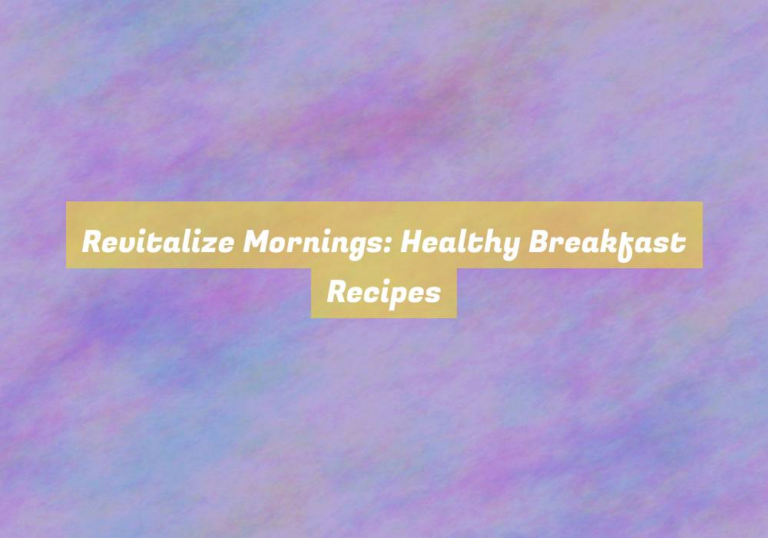Vegan Delights: Exploring PlantBased Nutrition
So, youG??ve heard about this whole plant-based nutrition trend, and you canG??t help but wonder what all the fuss is about. Well, get ready to have your taste buds tantalized and your health outlook transformed.
Whether youG??re a committed vegan or just curious about incorporating more plant-based meals into your diet, thereG??s a world of delicious and nutritious options waiting to be explored.
From mouthwatering recipes to the surprising benefits for your body and the planet, thereG??s so much more to discover about the world of vegan delights.
The Basics of Plant-Based Nutrition
To understand the basics of plant-based nutrition, itG??s important to recognize the fundamental principles of a diet centered around plant foods. By focusing on incorporating a wide variety of fruits, vegetables, whole grains, nuts, seeds, and legumes into your meals, you can ensure that youG??re getting a diverse range of nutrients and essential vitamins. These plant foods are rich in fiber, antioxidants, and phytonutrients, which are all beneficial for your overall health.
In addition to the nutritional advantages, a plant-based diet has been linked to a reduced risk of chronic diseases such as heart disease, diabetes, and certain types of cancer. The emphasis on whole, unprocessed foods can also contribute to better weight management and improved digestion.
ItG??s essential to pay attention to your protein intake by including sources such as tofu, tempeh, lentils, and quinoa, which are all excellent plant-based sources of this essential nutrient.
Exploring Vegan Recipe Options
As you look to integrate more plant-based meals into your diet, exploring vegan recipe options can open up a world of delicious and nutritious possibilities. From hearty stews and vibrant salads to decadent desserts, the variety of vegan recipes is bound to satisfy your taste buds.
Start your day with a nutrient-packed smoothie bowl topped with fresh fruits, nuts, and seeds. For lunch, try a colorful quinoa and roasted vegetable salad drizzled with a tangy vinaigrette. When dinnertime rolls around, experiment with a rich and comforting lentil curry served over fluffy rice.
DonG??t forget about the indulgent side of vegan cuisine. You can whip up dairy-free chocolate mousse using avocados and cacao powder for a guilt-free treat. If youG??re craving a savory snack, homemade hummus paired with crunchy veggie sticks makes for a satisfying and wholesome option.
Exploring vegan recipe options also means discovering new ingredients like nutritional yeast, tempeh, and aquafaba that can add depth and flavor to your dishes. Whether youG??re a seasoned chef or just starting out, the world of vegan cooking is full of endless opportunities to get creative in the kitchen.
Health Benefits of a Vegan Diet
Considering a vegan diet offers numerous health benefits, including improved heart health and lower risk of certain diseases. By eliminating animal products, you can significantly reduce your intake of saturated fats, which are linked to heart disease and high cholesterol. Instead, youG??ll consume more nutrient-dense foods like fruits, vegetables, whole grains, and legumes, which are rich in vitamins, minerals, and antioxidants. This can lead to lower blood pressure, reduced risk of stroke, and improved overall cardiovascular health.
Additionally, a plant-based diet has been associated with a lower risk of certain cancers, such as colon, breast, and prostate cancer. The high fiber content of vegan foods can aid in digestion and help prevent various gastrointestinal issues, including constipation and diverticulosis. Furthermore, the reduced intake of processed meats and high-fat dairy products can contribute to a decreased risk of type 2 diabetes.
Moreover, adopting a vegan diet can lead to better weight management and a lower body mass index (BMI), which is beneficial for overall health and can reduce the risk of obesity-related conditions such as metabolic syndrome and fatty liver disease.
Embracing a Sustainable Lifestyle
Embracing a sustainable lifestyle involves making conscious choices that minimize your environmental impact and support the health of the planet. As a vegan, youG??re already contributing to sustainability by reducing the demand for animal agriculture, which is a major contributor to greenhouse gas emissions and deforestation.
To further enhance your sustainable lifestyle, consider buying locally grown produce to reduce the carbon footprint associated with transportation. Additionally, aim to minimize food waste by planning your meals and storing leftovers properly.
Another key aspect of sustainability is reducing reliance on single-use plastics. Opt for reusable bags, containers, and water bottles. This simple switch can significantly decrease the amount of plastic waste in landfills and oceans.
Embracing a sustainable lifestyle also involves being mindful of energy consumption. Consider using energy-efficient appliances, turning off lights when not in use, and reducing water consumption. These small yet impactful changes can collectively make a substantial difference in reducing your environmental footprint.
Moreover, supporting sustainable and ethical brands when purchasing clothing and other products can further align with your values. Embracing a sustainable lifestyle not only benefits the planet but also fosters a sense of responsibility and mindfulness in your daily choices.
Conclusion
In conclusion, plant-based nutrition offers a wide range of delicious and nutritious options.
Whether youG??re looking to improve your health, reduce your environmental impact, or simply try something new, a vegan diet has something to offer.
With a variety of recipe options and proven health benefits, embracing a plant-based lifestyle can be both fulfilling and sustainable.
So why not give it a try and explore the many vegan delights available to you?






